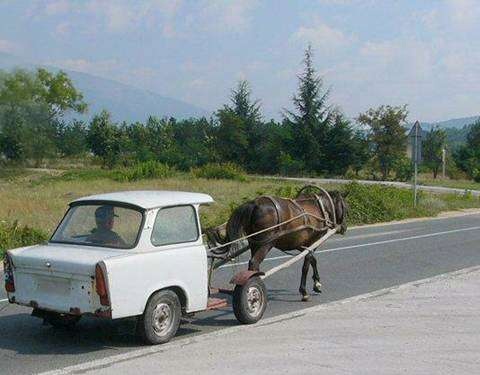Blog Post
Cataclysmic opportunity, or just cataclysm?

- Massive change in our energy, environment and economy is upon us. These have a common cause. (Chris presents these changes as exponential functions, putting us on the vertical portion of the classic "hockey stick" graph.) Says Chris, "The money supply is designed to expand exponentially, yet we live on a spherical planet."
- The pace of change could overwhelm the ability of our social and political institutions to adapt and respond.
- We have the power to make changes now to adapt to the future.
"When the mills shut down it was almost like doomsday around here," Tom Wood [the town historian] said. "Then the oil crunch hit at the same time. Gas prices went way up. People couldn't commute further to work. They had to get help from Social Services. Maybe that was the beginning of some of our problems." For all practical purposes Schuylerville, and towns like it, have become colonial outposts of another America. The idea of the self-sustaining small-town economy, still so potent in our national mythology, is grimly contradicted by the vacant shopfronts and decomposing facades along Broadway, as the main street is called.Since then I have seen Jim talk about how small towns like Schuylerville and larger depressed cities like Schenectady, New York, are poised for a post-suburban sustainability boom, in the world that he and Chris both foresee. How will that happen? Jim made this prognostication last night:
It's about what circumstances will require you to do. There are people who think we are going to technologize our way out of these problems, and there are people who think that we are going to organize our way out of these problems. Both of those are a form of hubris. We're going to have to self-organize. You're going to see emerging behavior. We're such control freaks, and a lot of this is not something we're going to control.What does he mean? You tell me. The fourth speaker last night was Linda Gunter, from Beyond Nuclear in Maryland. Linda spoke against nuclear power, linking it to nuclear weapons and many other issues. Time requires me to leave it at that and ask you to visit her website.
Published March 12, 2008 Permalink Citation
(2008, March 12). Cataclysmic opportunity, or just cataclysm?. Retrieved from https://www.buildinggreen.com/news-article/cataclysmic-opportunity-or-just-cataclysm



Add new comment
To post a comment, you need to register for a BuildingGreen Basic membership (free) or login to your existing profile.